Summer is such a wonderful time to have things growing in pots and garden. So productive in all the best ways. Brassica flower and set seed for the coming years, along with many others, attracting and supporting bio-diversity. If you've spent much time around flowering things, you'll have noticed the bumble bees, honey bees and native pollinators, alongside an abundance of bird life supported by the wealth of insect life.
It's a time for harvest, or watching (and watering) daily to see whether things have ripened and whether you might need to race the birds to get those super ripe raspberries or strawberries before they take the lot. It can require some inventive applications of netting or bird aversion tactics, alongside a lot of learning around pests and problems that threaten our crops.
To me, gardening is a wellness activity. Having watched the Netflix film "Don't Look Up" too many times over the Christmas period, at first finding it horrifyingly funny, and then all subsequent times bursting into tears repeatedly, gardening gives me hope.
It allows me to feel like I am acting in a way that supports our natural systems, reminds me how long it takes a fruit to ripen and that nature is priceless, often providing the solution to every problem that is presented if we just take the time to observe it and consider it.

According to OurWorldInData, in New Zealand, our per capita emissions sit at 6.94 tonnes per person as of 2020. In Congo, they dropped to a startling 0.03 tonnes per person. We're extremely grateful to Lema for reminding us of our freedoms, opportunities and support systems here in New Zealand and our ability to work together to make sure we all have enough while being kind to our planet and people from other places. We've learnt so much from Lema's experience.
We'd love you to start logging what you're growing so that we can show our collective impact in growing and show the world what's possible. Trading or gifting seeds you've collected on the marketplace allows us to reward you bio-diversity credits because seeds represent the lifecycle of plants. It's time to get harvesting and seed collecting.
Seeds represent the completion of a life cycle, and the potential to begin again. They are the proof of bio-diversity in action, most likely pollinated by something as they flowered and powering ecosystems, above and below ground.

Don't forget to weigh in your epic harvests and record them on PlantMe. We're trying to prove what's possible, and what people are already doing out there. The New Zealand government recently talked about spending $3 billion in overseas carbon offsets to meet our international obligations and while it might not seem like much, your individual contributions are massive when stacked up as a population.
As an example, I made a salad and pesto grown in 2 x 30 litre pots last night. It had cucumber, two different kinds of lettuce, beetroot, tomatoes, basil and lemon harvested from home.
That garden shopping saved me around $15 in ingredients and avoided 1.58kg of emissions.
At PlantMe.io we believe everyone has some space to grow a little more of their own at home. Following our real world example above, if everyone in New Zealand grew just enough for one meal like above (super easy in two pots), we'd collectively avoid nearly 8,000 tonnes of emissions
There's still loads of time to get growing and set yourself up for some Winter growers. Head over to our marketplace or sign up to our seed subscription, making it easy to plant what's in season now in your region. Alternatively, maybe you have seeds and extra plants to share in your area and beyond. It's easy to list them on PlantMe's marketplace and connect with other growers close to you.
Summer is such a wonderful time to have things growing in pots and garden. So productive in all the best ways. Brassica flower and set seed for the coming years, along with many others, attracting and supporting bio-diversity. If you've spent much time around flowering things, you'll have noticed the bumble bees, honey bees and native pollinators, alongside an abundance of bird life supported by the wealth of insect life.
It's a time for harvest, or watching (and watering) daily to see whether things have ripened and whether you might need to race the birds to get those super ripe raspberries or strawberries before they take the lot. It can require some inventive applications of netting or bird aversion tactics, alongside a lot of learning around pests and problems that threaten our crops.
To me, gardening is a wellness activity. Having watched the Netflix film "Don't Look Up" too many times over the Christmas period, at first finding it horrifyingly funny, and then all subsequent times bursting into tears repeatedly, gardening gives me hope.
It allows me to feel like I am acting in a way that supports our natural systems, reminds me how long it takes a fruit to ripen and that nature is priceless, often providing the solution to every problem that is presented if we just take the time to observe it and consider it.

According to OurWorldInData, in New Zealand, our per capita emissions sit at 6.94 tonnes per person as of 2020. In Congo, they dropped to a startling 0.03 tonnes per person. We're extremely grateful to Lema for reminding us of our freedoms, opportunities and support systems here in New Zealand and our ability to work together to make sure we all have enough while being kind to our planet and people from other places. We've learnt so much from Lema's experience.
We'd love you to start logging what you're growing so that we can show our collective impact in growing and show the world what's possible. Trading or gifting seeds you've collected on the marketplace allows us to reward you bio-diversity credits because seeds represent the lifecycle of plants. It's time to get harvesting and seed collecting.
As Summer makes itself known and we get more opportunity to notice and get into the garden, I'm reminded of last year and putting a
call out on a well known Permaculture Facebook Group asking for people who grow, willing to share their stories,
and show us their gardens. We were blown away by the aroha and response and ever since, have been trying to do what we filmed justice.
At a time when New Zealand is in the news for being top of class for all the wrong reasons, it's inspiring to be able to show the literal
grassroots movement there is in your community already growing and taking action to create local resilience. Maybe their kamokamo hasn't crept it's way to your garden through or over the fence yet, but it's exactly that we're trying to inspire and show the impact of through PlantMe.io. Neighbourhood garden blitzes where available green space extends the mahi of people like Tai in our video below. We're everywhere - those of us that spot a spare piece of land doing nothing with great light.
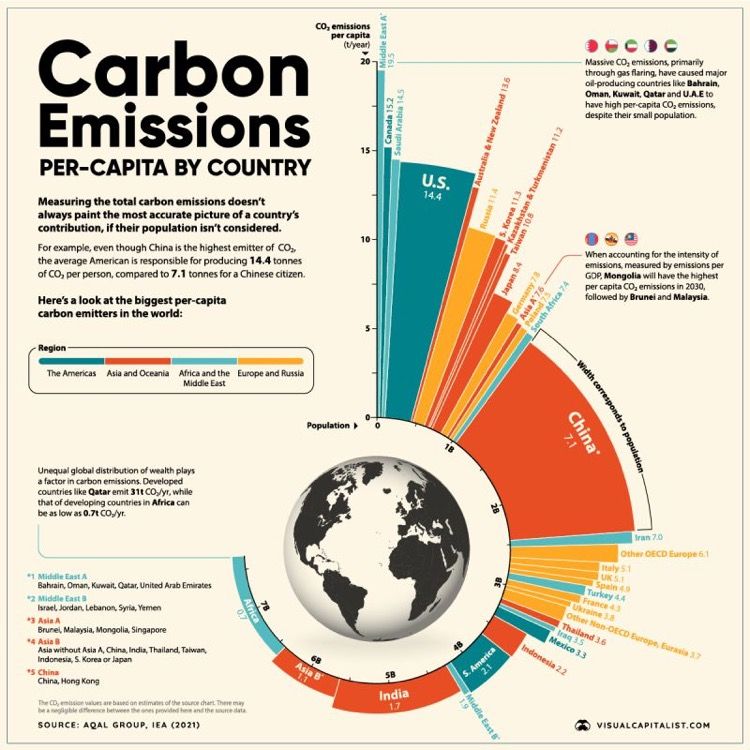
We're looking for more people like Tai. Those that are up for growing, trading, gifting and supporting others in their community to get growing, connect with where their food comes from and fall in love with gardening. We want to reward you for that. Make sure you're logging what you're growing in our Plant Diary, so we can calculate your emissions and reward your impact of getting growing If that sounds like a bit of you, we'd love to hear from you at [email protected]
PlantMe.io on the Breakfast Show, TVNZ
Kiwis keen to get their green fingers moving, save money and be more self-sufficient can start their own gardening journey thanks to an innovative seed delivery service and digital growing guide complete with a world-first rewards system.
“The idea is to encourage more people to get growing at home as meaningful climate action while also improving nutrition, health and wellness and your bank balance,” says PlantMe founder and CEO Fliss Roberts.
Source An article in the Herald about PlantMe
“We’re building crypto rewards that will be a world-first in rewarding individuals for their climate action and bio-diversity restoration, and now we are inviting Kiwis to sign up to the platform and be citizen scientists to help us prove what’s possible and generate the data.”Source A Press release in Scoop about PlantMe
With an MBA in Sustainability, Fliss, who heads up Greenback, a female led green-tech start-up supporting collective climate action, got to work on building the PlantMe.io app. With the help of volunteer software developers, many fresh out of university and keen to apply their newly-learned skills to a business with a purpose, Fliss was able to launch PlantMe in 2019.
PlantMe is inviting more Kiwis to sign up to have seeds delivered to their homes on a monthly, or quarterly, basis so they can grow their own fruit and vegetables with confidence. Subscribers are then supported on their gardening journey by digital growing guides, and seed choice is made depending on the recipient’s location to ensure optimal growth can be achieved.
“PlantMe.io makes it so easy to get growing now. In addition to having everything delivered to the door, we’ve got a land-share feature, which is popular for those who have extra space and want to share or rent it with gardeners who might not have their own plot.”
The number of Kiwis building vegetable gardens and taking the leap to grow their own veggies rose quickly during the 2020 lockdown, and recent lockdowns have seen the trend continue. In New Zealand and Australian, sales of vegetable seeds left many seed suppliers overwhelmed with orders 10 times higher than usual during the 2020 Level 4 lockdown in 2020.
A Californian study shows that backyard gardens can reduce State emissions by 7.8%, which is a meaningful statistic when according to the UNEP we must reduce emissions by 7.6% every year for the next decade to limit global warming to 1.5 degrees. Gardening has also been shown to have huge positive impact on mental and physical health, something we’re all perhaps aware of after periods of ongoing lockdown.
PlantMe is committed to helping make the planet a more sustainable one, so that future generations can enjoy and prosper and live without climate anxiety. PlantMe has just added new features showing each subscriber’s climate impact and dollar savings when they log plants, progress and record harvests with pictures.
Source An article in Stuff.co.nz
Currently being investigated as a mighty mitigator, locking carbon in soils for hundreds, or even thousands of years, bio-char is the product of pyrolysing wood...e.g. burning it without oxygen. As a result, the water molecules evaporate, and you're left with something akin to charcoal, but retaining its original shape and providing the perfect host environment for micro-organisms to flourish.
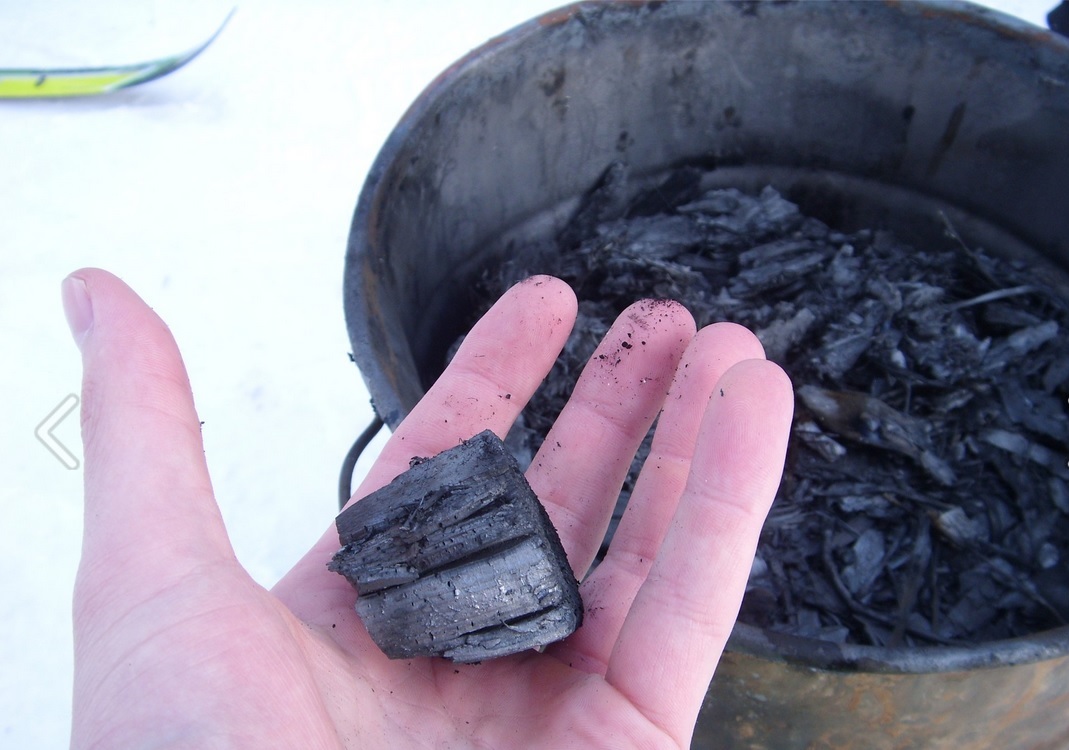
Holding 3 times its weight in water, it's a highly beneficial soil conditioner that can also
be soaked and primed with worm wee or animal manure/urine to super charge the growing potential.
We have no shortage of available source material, here in Aotearoa. Our forestry sector waste can be seen
on any car journey travelling down the North Island, often left to rot after pine forests have been harvested.
Often on steep inclines and not worth the effort of dealing with, this "slag" can find itself causing carnage
in heavy weather events, blocking waterways or finding itself washed out to sea, and back onto the beach.
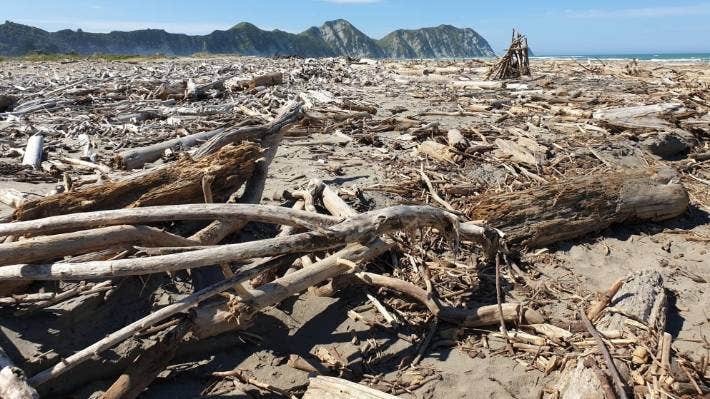
Source Stuff.co.nz
There are so many useful applications for bio-char, but one of its key benefits is that it sequesters roughly three times its weight in carbon for hundreds to thousands of years. Rather than leaving it to rot, we could be utilising this resource. The benefits for growing plants include increased productivity (more veg, fruits and nuts without really trying). It reduces leeching of nutrients from soil. It could also potentially be used to make use of animal effluent, acting as a long term soil storage unit, slowly releasing nutrients into the soil for plants to use and limiting the stench and emissions from stock effluent plants (we've all driven past one).A great resource for further reading can be found at the Biochar Network New Zealand.
BioChar Network of New Zealand website - the benefits are far and wide-reaching. Previously, it's been quite hard to get a hold of New Zealand made bio-char, with expensive offerings shipped from China... until now. The local industry is growing, regional networks starting to grow and those with the space and interest for a backyard bio-char kiln are getting into it.We visited Phil Stevens, founder of the Slow Farm in Ashburton, who gave us the tour of his bio-char production site and showed us the benefits to soil activity he'd noticed in one season's application. Phil built his own kiln and is involved in research being conducted on open field sites looking at sequestration capacity while also trying to build the network of bio-char providers throughout New Zealand, enabling local sales of locally produced biochar - maximising emissions reductions capacity from all the angles.
Winter and early Spring are a great time to get those trees in the ground, giving them a good chance to settle roots and prepare for the dry Summer months. As climatic shifts and global weirding looks set to threaten our food security, biodiversity and social cohesion, are community orchards and more planting of fruit and nut trees the answer?
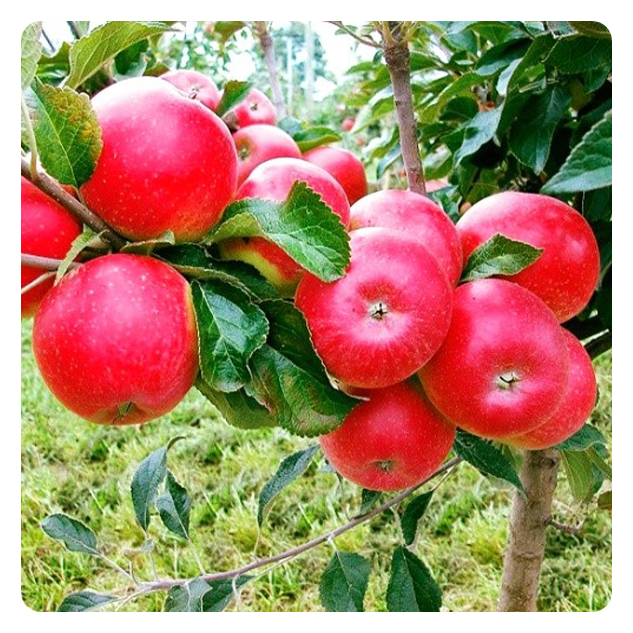
The dominant crops we plant are annual - planted, harvested and replanted every year. Perennials
come back every year with similar yield and higher rates of carbon sequestration. Staple foods from
trees include fruits like bananas and breadfruit, oil rich avocado, and nuts like macadamia and
hazelnut. These trees can be a part of forest farms, multi-level agroforestry or intercropping
systems.
They can also reverse erosion, runoff and create higher infiltration rates for rainwater. You can
grow them on steep slopes and in a variety of soils while they also require lower inputs of fuel,
fertiliser and pesticides. If you create a diverse orchard, the system can often become self
managing, creating fantastic habitats for wildlife and generally encouraging greater bio-diversity
than parks and gardens.
Which is why urban, community orchards could be such a nifty solution to feeding and supporting
people in city environments. Planting orchards in urban areas increases tree coverage, the benefits
of which include more shade coverage and cooling effects as summer temperatures increase. Increased
rainwater uptake and a carbon sequestration rate of 3.34 tonnes per hectare, every year, for
decades, perennials produce 2.4 times more food than annuals grown in the same area. They cost 40%
less to produce than annuals (trees just kinda grow and fruit with very little input required).
There is always abundance and enough to go around when you have mature perennial tree crops
producing.
We visited Mel, one of the founders of Wellington's first urban community orchard, now mature, busting with life, insects, fruits and people and positioned in a busy walkway next to a school in Brooklyn. The project started by guerilla planting available space, asking for permission from Council while proving the case. All of the trees had stories attached to them. There was still fruit on the trees because the community knew to fill only their pockets, not their bags, so to leave some for others to enjoy. Kids picked fruit for their lunchbox on the way to school. It felt like a wonderful place to go and bump into people, learn about what likes to grow in that area and find inspiration from the place and purpose. We take you for a look around the orchard in our short documentary, Growers of Aotearoa, with a sneak peak below.
Leafy greens provide us with some really vital micro-nutrients and are so important in the transition to
increasing the plant based content of your diet and good health. Winter is a perfect time to grow them
and Summer, the perfect time to collect their seeds, ready for the next planting season.
Kale, as an example, is considered one of the most nutrient dense foods on the planet, high in Vitamin K,
A and C and also anti-oxidants that help maintain great eyesight amongst other things. Other greens are
just as beneficial. Many can be grown year round and easily turned into stunning, nutritious and tasty
meals. You're basically eating for free, with minimal effort.
.jpg)
Maybe what you didn’t know, is that according to recent NZ based research, the case for growing your own
has additional benefits to your long term health, and that of your friends, family and global neighbours.
The benefits of some real, meaningful climate action when you figure the figures out.
According to Otago University, leafy greens (so your kales, silverbeets, mesclun, lettuce, spinach, microgreens, cabbage etc) have just over 3kgCO2e/kg (or 3kg of carbon emissions for every kilogram of greens)..which means per weight of leafy greens, grown at home, nutritionally better for you, fresh from your garden, you save 3 times their weight in emissions!
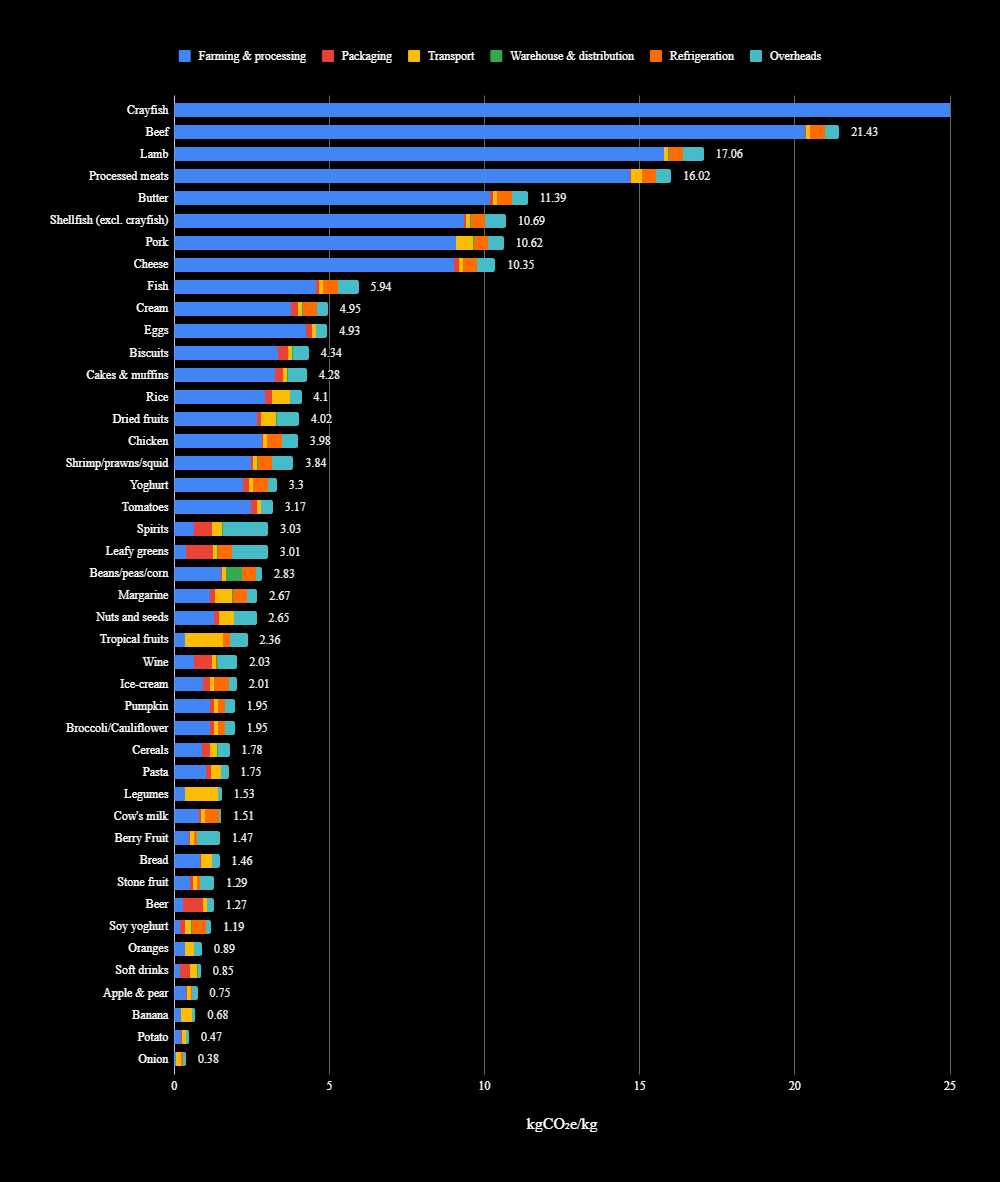
Source The Mouthful
Doesn’t sound like much? Our family of four ate 1kg (easily) of homegrown leafy greens this week. There’s enough amongst our 4 cavolo nero plants, 4 collard green plants, mesclun, kale and herb pots to harvest lots more than this. Every week.
Now here’s the really interesting bit. In a 2017 study in Santa Barbara, researchers modelled the
potential for carbon sequestration in a vegetable garden, compared to other options for your outside
space like lawns.
In the UK, pictures emerged just before Christmas, as the result of a new Covid strain and unexpected
lockdown, of trucks filled with supplies parked on motorways. They were unable to reach their final
destination and UK citizens became instantly aware of food security issues in a country dependent on
overseas food exports.
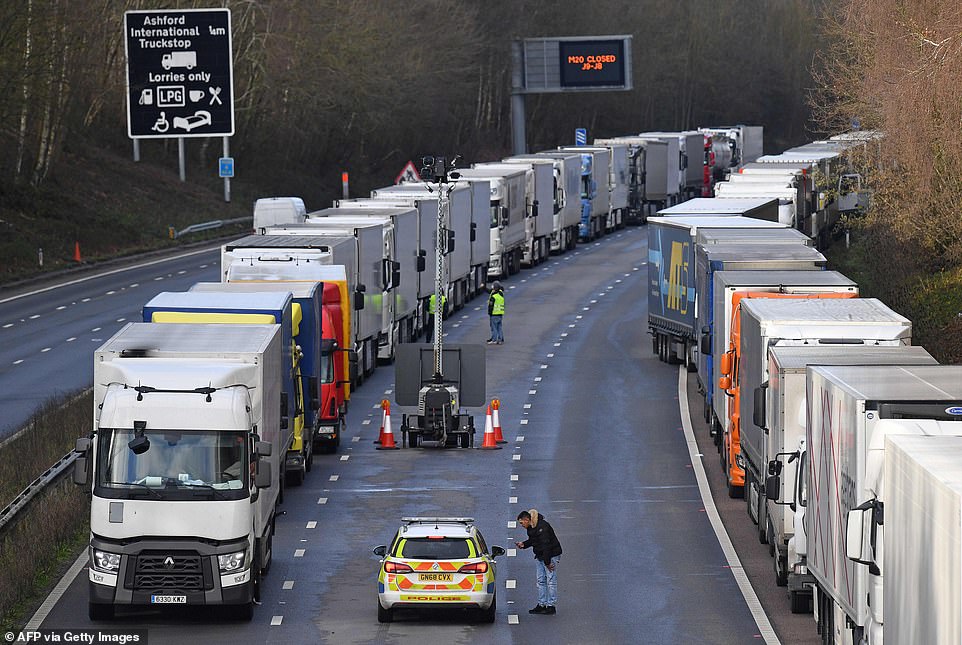
This week, Auckland entered Level 3 lockdown, with the remainder of New Zealand in Level 2 and an uncertain future as we head towards Autumn and Winter when the bugs and viruses love to thrive. Wherever you’re from, whatever your background, food is something which links all of us as human beings, and animals and plant life. This common connector is a need for every living thing. When it is threatened, our survival instincts have to kick in - it’s evolution. It’s why we’ve survived for this long. And it’s why many countries are experiencing a boom in demand for seeds and seedlings, in recognition of our animal instincts to adapt and survive. To have the capacity to grow some of our own food, improve food security and sovereignty alongside the ability to avoid reliance on supermarket shopping.
Seeds, the embryos of plants and trees, and their supply are globally largely controlled by only a few
corporations. After mergers, 4 dominant companies control over 60% of seed markets.
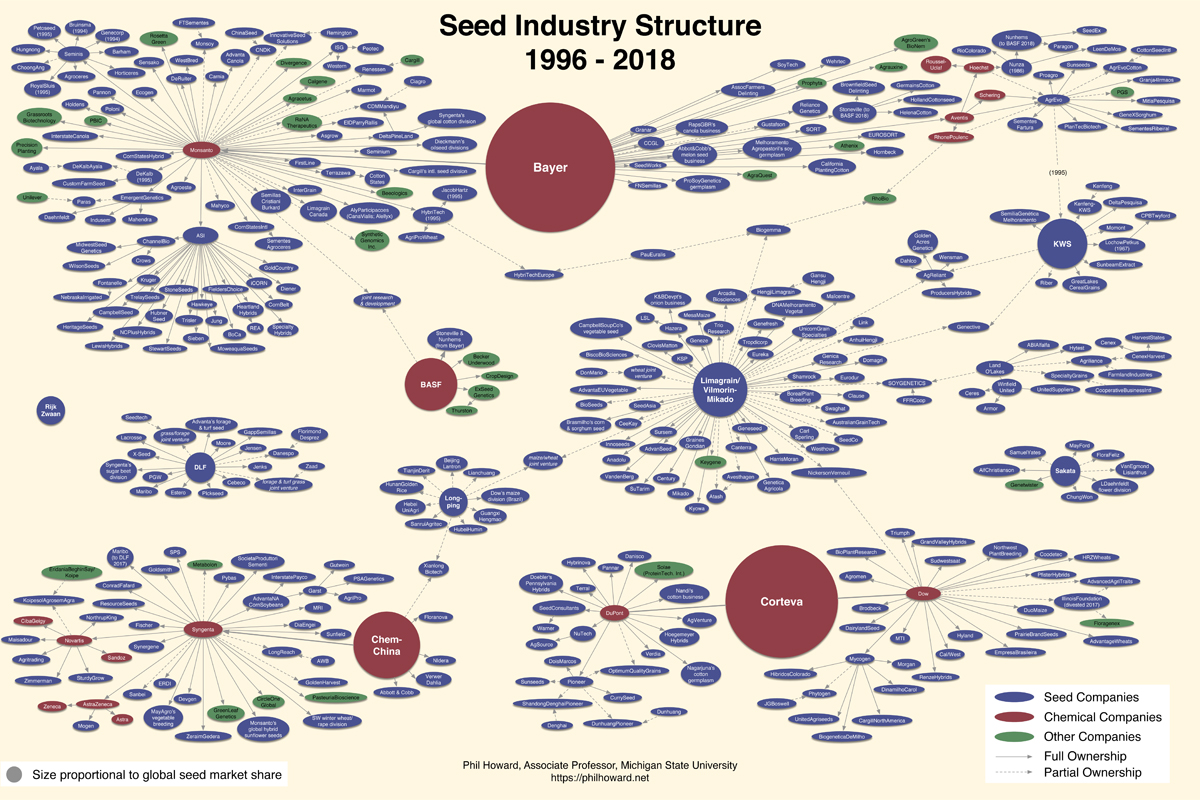
Our indigenous cultures, marginalised and colonised, know how important it is not only to preserve seed but
also to select the best plants which have adapted to the unique local environment. Their close connection
with the lands, plants, water, animals, sky is all about observation and preservation for survival. The
wealth of different kinds of corns, uniquely adapted for some of the harshest climates in the world are
just one example of the importance of diversity as we enter a climatically uncertain period of human
history. Indeed the Native American Food Sovereignty Alliance state "Seeds are a vibrant and vital
foundation for food sovereignty, and are the basis for a sustainable, healthy agriculture. We understand
that seeds are our precious collective inheritance and it is our responsibility to care for the seeds as
part of our responsibility to feed and nourish ourselves and future generations." There is untold and
unrecorded bio-diversity remaining. Grandma’s lemon tree, Great Grandpa’s pumpkins. Perhaps even more so
in Aotearoa where we are GMO free and in gardens, pots and communities there is huge potential resource
of open pollinated, heritage seeds that have evolved with us over the last few hundred years to perform
beautifully in our climate. Although there are a few seed suppliers here, much our seed comes from
hybridised varieties bought on the international market from the big suppliers.
PlantMe.io was designed, in part, to record, track and share real-time information on which species of
plants do well where, while also making it really easy to trade, buy or sell a wider range of heritage
and open pollinated plants and seeds.
It's seed collecting season right now here in New Zealand. Sign up today to receive our newsletter on
what's happening and how to get involved with improving our food security, food sovereignty and grow
together!
Kia ora!